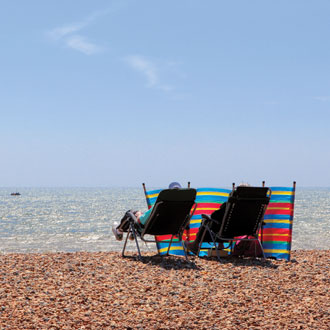Revealed: NHS funding splashed on holidays, games consoles and summer houses

Exclusive Millions of pounds of NHS funding have been spent on luxury goods such as summer houses, holidays and pedalo boats, under a scheme to give patients ‘personal health budgets’.
A Pulse investigation found that the scheme to give ‘patients more control over their care’ has been used to buy many unevidenced treatments at the expense of long-established services, which have been defunded.
Information obtained under a Freedom of Information Act shows that CCGs in England predict spend of over £120m this year for 4,800 patients on the personal health budgets scheme.
CCGs reported the following services were bought by patients on the scheme:
- NHS Nene CCG and NHS Corby CCG gave patient funds to have a holiday to rest and reconnect with family, an iRobot, and the construction of a summer house;
- NHS Kernow CCG spent £2,080 on a patient’s aromatherapy, £248 on horse riding lessons and even spent money for a patient to hire a pedalo;
- NHS Stoke CCG spent money on a Wii Fit games console for a patient, and £1,000 on a patient’s weekly music lessons.
Since October last year, all eligible patients have had the right to hold a personal health budget, which allows them to spend NHS cash as they wish. NHS England’s Five Year Forward View has called for a ‘major expansion’ of the scheme.
But experts have been scathing, as NHS England estimates it needs at least £20bn in efficiency savings to stand still by 2020.
Related stories
Pulse has learnt that personal health budgets are beginning to destabilise existing services, with one mental health service having to close its doors due to its funding being ploughed into the scheme.
Dr Richard Vautrey, deputy chair of the GPC, says personal health budgets can have a ‘very big impact on existing services’.
He said: ‘Quite often they are working within limited margins and so loss of even a small amount of their income can jeopardise a whole service – so this can have serious implications for large numbers of people just based on the whims of a small number.’
Professor Nick Watson, professor of health and wellbeing at the University of Glasgow, said the scheme was ‘consumerist’.
He said: ‘I think that we are going forward on poor evidence and there is a clear ideological drive behind it.’
But an NHS England spokesperson said: ‘Personal health budgets are designed to meet identified health needs in ways that give patients more control over the care and support they receive. The spending must be agreed between the individual and the NHS, meet the patients individual health needs and achieve the desired outcomes.’
The policy has been plagued with controversy from its inception. Initial pilots for the scheme, launched in 2009, gave patients an upfront pot of money – either as a direct payment or a ‘notional’ budget held by the CCG or other independent party – for them to spend on services as they chose.
An independent evaluation of the personal budget pilots – led by the Personal Social Services Research Unit at the University of Kent – found there was a significant improvement in the quality of life and psychological wellbeing of the patients and a reduction in hospital costs.
However, it also found patients used significantly more non-NHS services as result of using the personal budgets, and that money was spent on theatre tickets and ready meals.
Portfolio careers
What is the right portfolio career for you?

Visit Pulse Reference for details on 140 symptoms, including easily searchable symptoms and categories, offering you a free platform to check symptoms and receive potential diagnoses during consultations.












